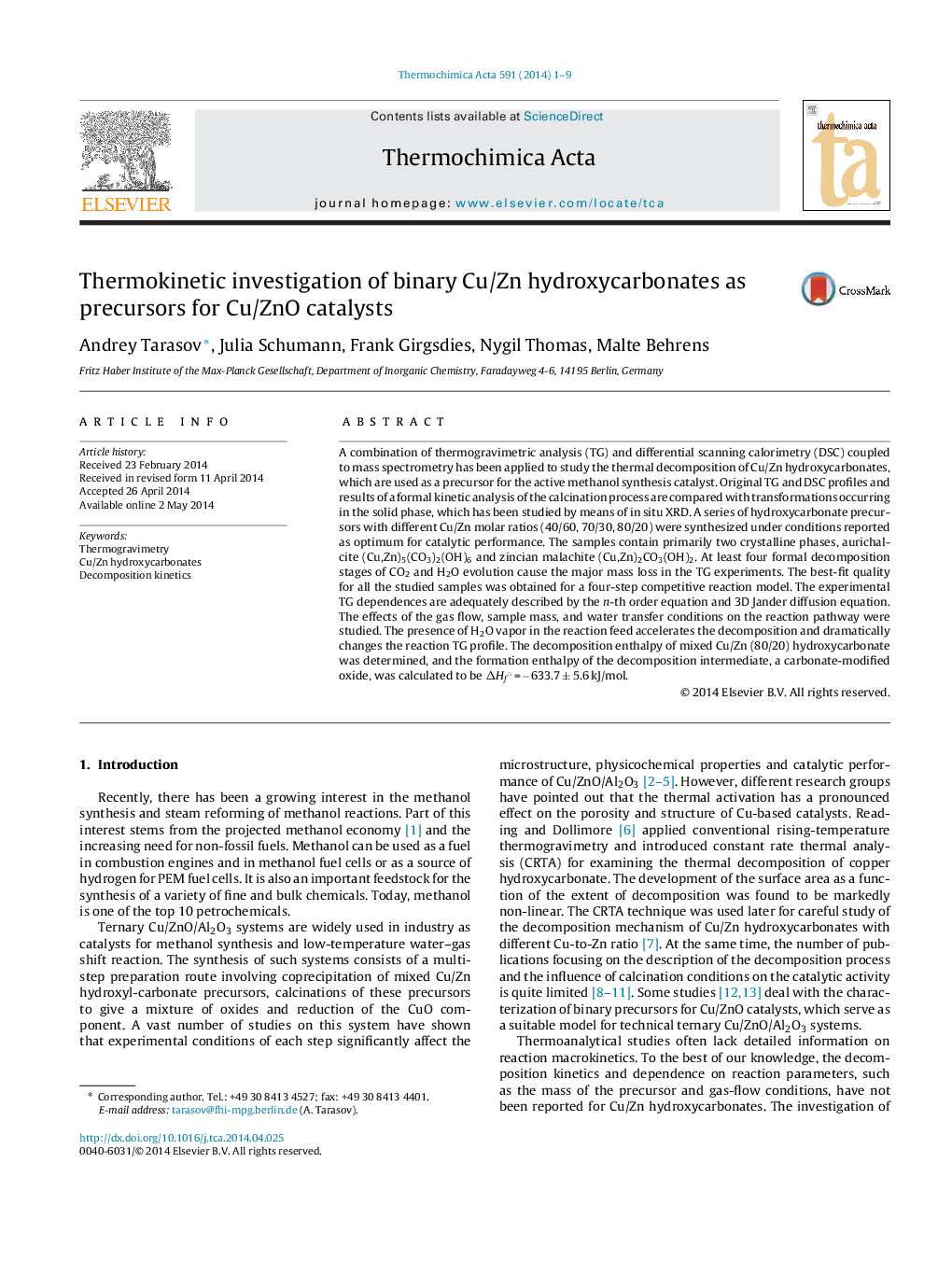| Article ID | Journal | Published Year | Pages | File Type |
|---|---|---|---|---|
| 673168 | Thermochimica Acta | 2014 | 9 Pages |
•A series of phase-pure Cu/Zn hydroxycarbonate precursors were synthesized.•Decomposition kinetics was studied for synthetic aurichalcite and zincian malachite.•Influences of gas flow, sample weight, and water transfer conditions were explored.•The reaction pathway is strongly depended on water transfer limitations.•Reported results are of high impact on the calcination process.
A combination of thermogravimetric analysis (TG) and differential scanning calorimetry (DSC) coupled to mass spectrometry has been applied to study the thermal decomposition of Cu/Zn hydroxycarbonates, which are used as a precursor for the active methanol synthesis catalyst. Original TG and DSC profiles and results of a formal kinetic analysis of the calcination process are compared with transformations occurring in the solid phase, which has been studied by means of in situ XRD. A series of hydroxycarbonate precursors with different Cu/Zn molar ratios (40/60, 70/30, 80/20) were synthesized under conditions reported as optimum for catalytic performance. The samples contain primarily two crystalline phases, aurichalcite (Cu,Zn)5(CO3)2(OH)6 and zincian malachite (Cu,Zn)2CO3(OH)2. At least four formal decomposition stages of CO2 and H2O evolution cause the major mass loss in the TG experiments. The best-fit quality for all the studied samples was obtained for a four-step competitive reaction model. The experimental TG dependences are adequately described by the n-th order equation and 3D Jander diffusion equation. The effects of the gas flow, sample mass, and water transfer conditions on the reaction pathway were studied. The presence of H2O vapor in the reaction feed accelerates the decomposition and dramatically changes the reaction TG profile. The decomposition enthalpy of mixed Cu/Zn (80/20) hydroxycarbonate was determined, and the formation enthalpy of the decomposition intermediate, a carbonate-modified oxide, was calculated to be ΔHf° = −633.7 ± 5.6 kJ/mol.
